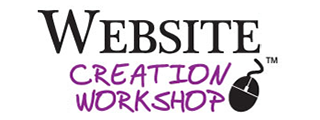For many years, buying a domain name often came with an extra offer: “Would you like to add domain privacy protection for $10 to $15 a year?” If you wanted to keep your personal information out of public records, you had to pay for it.
Times have changed. Thanks to updates in privacy laws and industry standards, you often no longer need to pay extra for domain privacy. Many registrars now include it for free!
However, not every registrar or domain extension follows the same rules, so it’s still smart to double-check before you assume it’s included.
What Is a Domain?
A domain is the address people type into a web browser to visit your website – like https://websitecreationworkshop.com. It provides a simple, memorable way to find your website instead of using a long string of numbers called an IP address.
When you register a domain, you are essentially renting that address for a set period, usually one year. Each domain is unique; no two websites can have the same domain. Without it, visitors would need to use complex numerical addresses to reach your site.
A domain has two main parts:
- The name – The part you choose, such as “example.”
- The extension – The part after the dot, such as .com, .org, or .net.
Owning a domain makes your website appear professional and easy to find. Like a home address, it is tied to your contact information, which is where domain privacy protection comes into play.
So…What Is Domain Privacy?
When you register a domain, the registrar collects your name, address, phone number, and email address. By default, this information appears in a public database called WHOIS.
Without privacy protection, anyone could look up your domain and see your contact details. This exposure can lead to spam, scams, or unwanted contact from competitors.
Domain privacy protection, also called WHOIS privacy, replaces your personal contact details with those of a proxy or forwarding service. This keeps your real information hidden from the public.
Why You No Longer Need to Purchase Domain Privacy
In the past, you had to pay an extra yearly fee to keep your information private.
Today, most major domain companies – like Namecheap and GoDaddy – include privacy protection for free with common domains like .com, .net, or .org. This is partly because of stronger privacy laws, such as the GDPR in Europe, which forced registrars to protect customer data more carefully.
However, there are a few exceptions. Some country-specific domains (like .us, .ca, or .uk) have different privacy rules. A few registrars still charge for “enhanced” privacy services that hide even more details. That’s why it’s always a good idea to check your account to see what’s included with your domain.
The good news? For most small business owners with standard domains, privacy protection is already built in – and free!
Final Thoughts
Domain privacy used to be something you had to buy every year. Now, most registrars offer it for free. It’s one less thing to worry about – and one more way to protect your personal information online.
Log in to your registrar account (i.e. Godaddy.com, NameCheap.com, NetworkSolutions.com, etc). If you’re paying for privacy, check if it’s already included and cancel the extra charge. While you are in your account, make sure all your contact information is up to date.
It’s always nice to find ways to save money in your business!




































